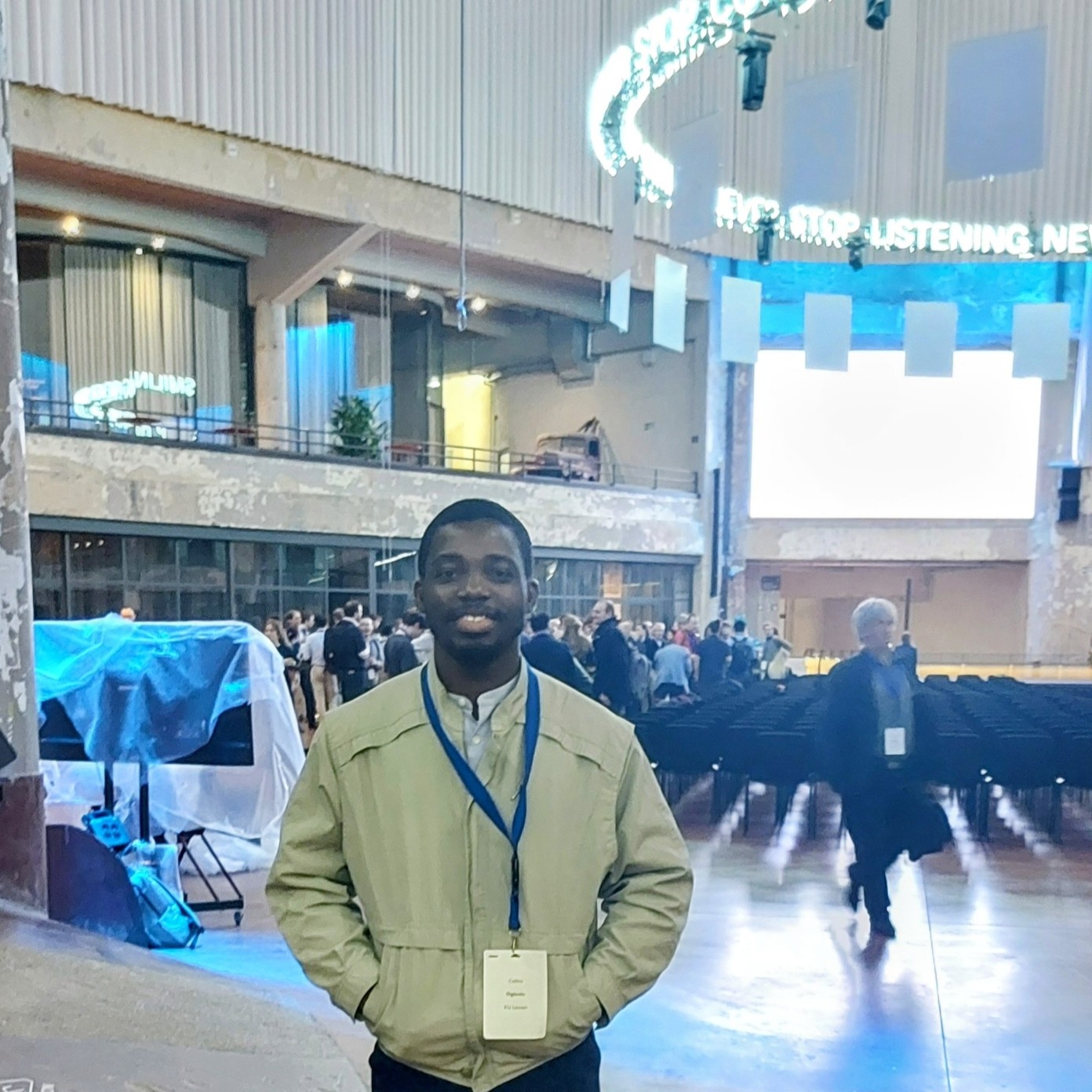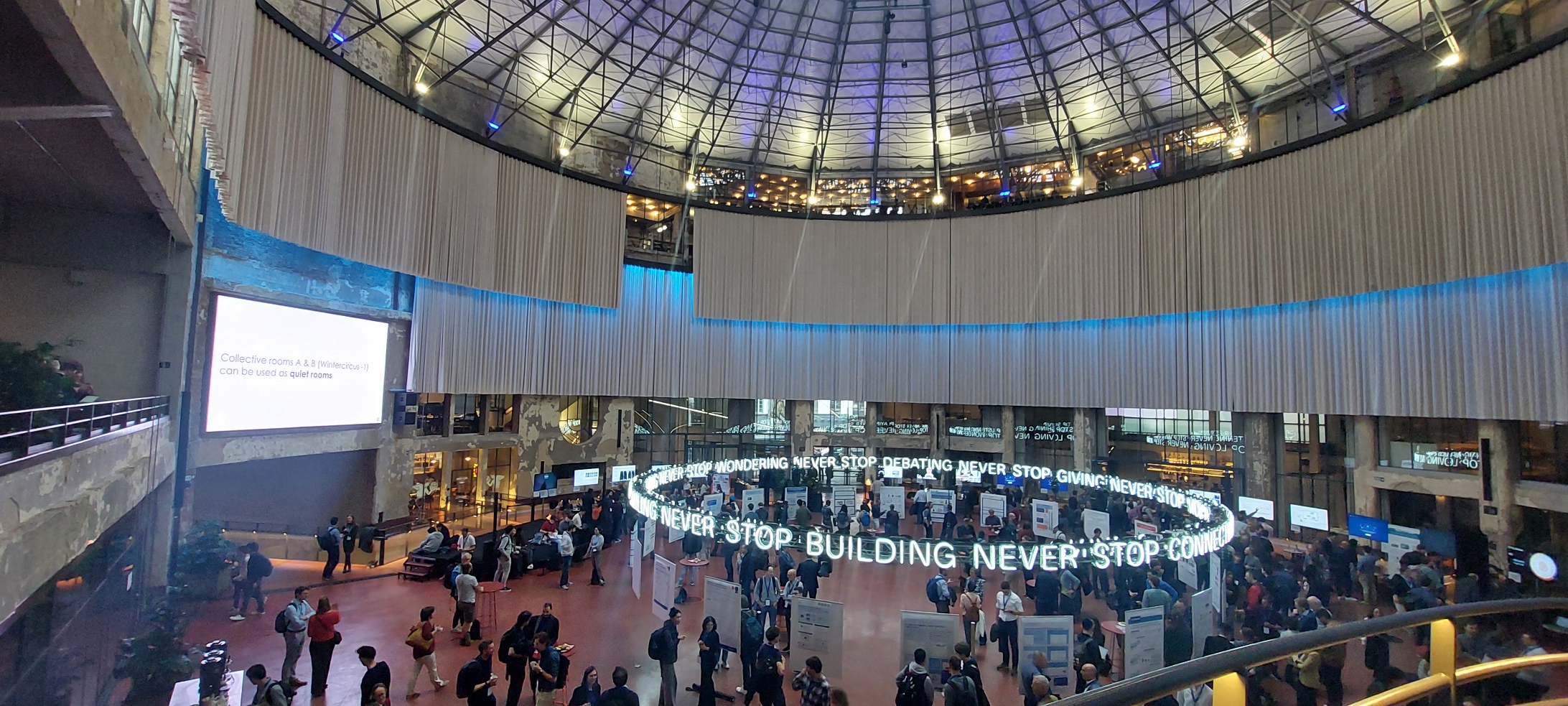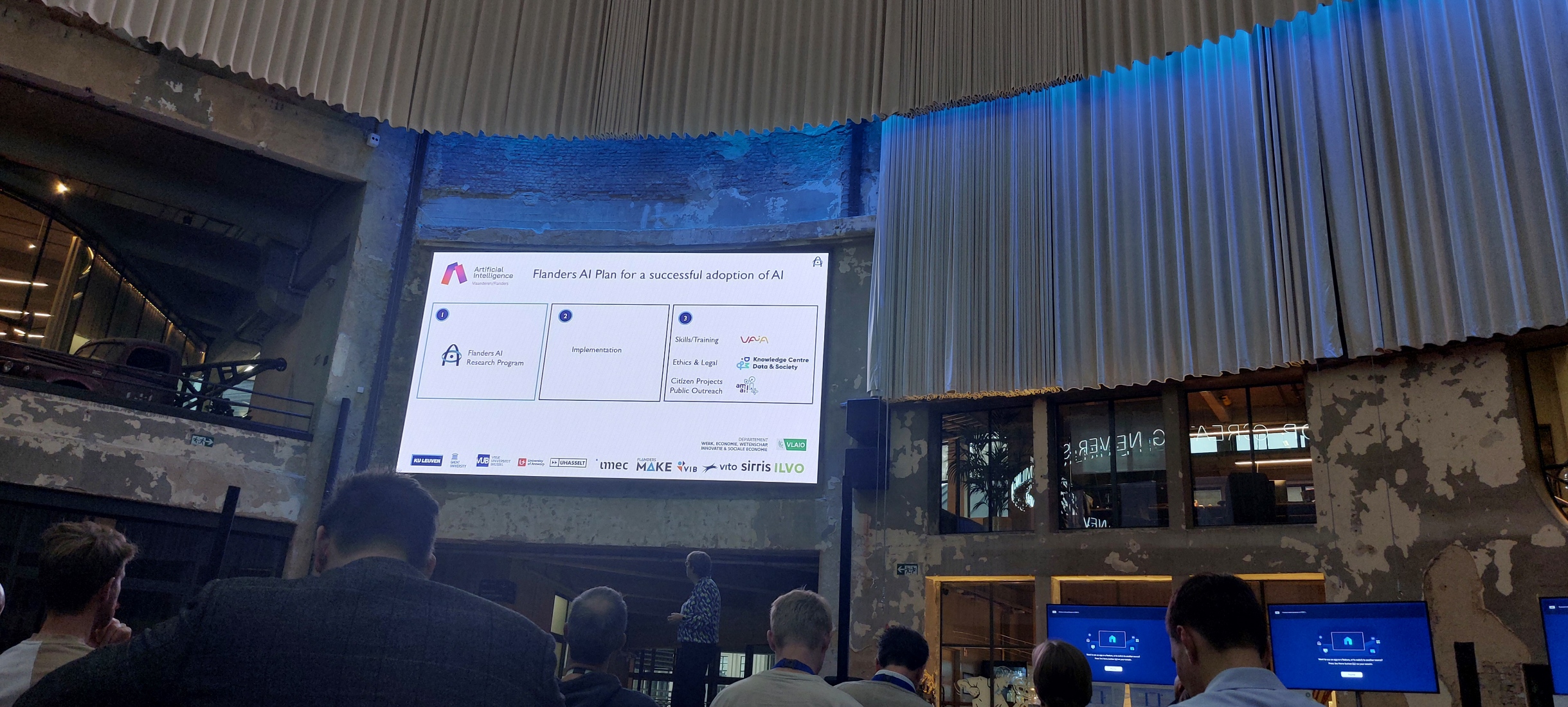Flander AI Research Day 2025 at Wintercircus, Ghent, Belgium
This week Wednesday 15th 2025 I attended the Flander AI Research day. The event brought together over 130 doctoral candidate, many other company, academic institution and start ups. Discussion focused on AI application in engineering and had so many presentations.
Summary
I had a great time and learnt a lot. I also interacted with many researchers and company about their research and products. I attended the following seminars sessions
Human-Aware Technology for Optimization
Tias Guns (KULeuven)
Combinatorial optimisation is widely used to solve scheduling, sequencing, rostering, routing and other assignment problems. The traditional paradigm is that of model+solve, where an expert user expresses their problem in constraints and a highly efficient solver searches for the optimal solution. To make this approach more human-aware, we will revisit this into the model+solve+explain paradigm. We’ll cover recent work on LLM-based translation from natural language to formal combinatorial problem specifications; on tools to compare CP/ILP/PB/SAT solvers from a single specification; and on explainable constraint solving techniques that allow explaining why there is no (better) solution, or how to best deal with disruptions. We end the talk by showing how we are further developing these techniques on Flanders Make’s multi-agent high-mix low-volume assembly scheduling use case, where human and robot workers collaborate in specialized product assembly.
AI driven smart design engineering
Prof. Ivo Couckuyt (University of Ghent)
Accelerating engineering with artificial intelligence: Driving faster design and optimization with limited data In industries like engineering, manufacturing, and healthcare, access to large, labeled datasets is often limited - making it challenging to apply traditional Machine Learning (ML) methods. However, the data that is available tends to be of high quality, e.g., coming from time-consuming physics-based simulations or costly lab-controlled experiments. Data scarcity has emerged as a major challenge in recent years, and going from the traditional “big data” to “small data” requires a shift in approach. In this talk, we introduce data-efficient ML (or surrogate modeling), which enables practitioners to build and deploy effective models trained on just 10 to 100 examples. Data-efficient ML can accelerate tasks such as design space exploration, optimization, sensitivity analysis, generative design, and the development of cost-effective digital twins. We explore several real-world examples from industry, from creating trustworthy digital twins, to the design of ventilation systems and optimizing the manufacturing process. Data-efficient approaches unlock many new use cases in which only small (labeled) datasets are available. This minimizes the time, engineering effort, and data required to go live and create practical value from artificial intelligence.
Accelerating engineering product design with physics-informed AI
Prof. Dirk Deschrijver (Imec)
Designing high-performance engineering devices—whether mechanical, electronic, or photonic—remains a complex, time-intensive process. Lengthy cycles of simulation, measurement, and optimization often slow innovation and inflate costs, especially when the gap between available technology and desired functionality continues to grow. This session explores how physics-inspired models enriched with advanced AI techniques can transform the design process. By combining the predictive power of AI with the reliability of physical principles, engineers can automate and accelerate device development—making it faster, more accurate, and cost-effective. From photonic components in telecom to mechanical systems in aerospace and electronics for renewable energy, this approach empowers design teams to push boundaries, reduce time-to-market, and deliver smarter, high-performance products.



P.S.
Ghent is a lovely city with a vibrant community. I met an old friend at the event, we graduated from Skoltech together back in 2022.